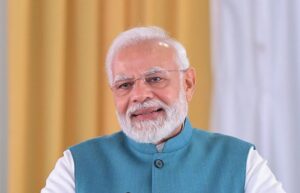



External Affairs Minister S. Jaishankar has clarified that the India-Pakistan understanding to cease hostilities was the result of direct negotiations between the two nations, rejecting claims by US President Donald Trump that Washington played a mediating role.
In an interview to Dutch broadcaster NOS during his ongoing Europe tour, Jaishankar emphasized that while global powers expressed concern during the military standoff, the ceasefire was a bilateral decision reached independently by New Delhi and Islamabad.
“The cessation of firing and military action was something which was negotiated directly between India and Pakistan,” Jaishankar said, underscoring India’s sovereign decision-making.
He further stated that India made it explicitly clear to all parties, including the United States, that Pakistan must convey its intent to halt hostilities directly to India.
“We told everyone, including the US, that if the Pakistanis want to stop fighting, they need to tell us directly. Their general has to call up our general – and that is exactly what happened,” he said.
This statement comes in the wake of President Trump’s repeated assertions that Washington helped broker the truce, following the dramatic escalation in military tensions earlier this month.
Operation Sindoor Still Active
Jaishankar also reaffirmed India’s right to respond to terrorism emanating from across the border. Referring to Operation Sindoor, the precision strikes carried out by India on May 7 targeting nine terrorist infrastructure sites in Pakistan and PoJK, he said the operation continues as a clear message to Pakistan.
“If the terrorists are in Pakistan, we will hit them where they are. The operation continues not for the sake of conflict, but as a deterrent against future attacks,” Jaishankar asserted.
The strikes came in retaliation to the April 22 Pahalgam terror attack, which Jaishankar described as “barbaric”. He revealed that the attackers singled out victims based on their religion, committing mass murder with the aim of igniting religious discord in India.
“It was imperative to respond. The lack of response was not an option,” he said firmly.
Ceasefire Amid Retaliatory Strikes
Following India’s surgical operations, Pakistan attempted retaliatory strikes on May 8, 9, and 10, targeting Indian military installations. These attempts were swiftly repelled with heavy retaliation, causing significant damage to Pakistani military assets.
On May 10, Foreign Secretary Vikram Misri officially announced that India and Pakistan had agreed to halt all military actions across land, air, and sea.
Talks Possible – But Only on PoJK and Terrorism
Jaishankar also opened the door for dialogue with Pakistan — but with clear boundaries.
“We are willing to talk to Pakistan, but only about the return of Pakistan-occupied Kashmir (PoJK) and on the issue of terrorism,” he said.
When asked about the potential impact of regional tensions with Pakistan and China on India’s economic growth, the minister dismissed the notion of choosing between security and prosperity.
“Security and economic growth are part of the same coin. You can’t grow without security. Our challenges are far more threatening than Europe’s, and we have prioritized accordingly,” he explained.
Jaishankar is currently on a three-nation tour of the Netherlands, Denmark, and Germany, focused on strengthening diplomatic, strategic, and economic ties with European nations.










